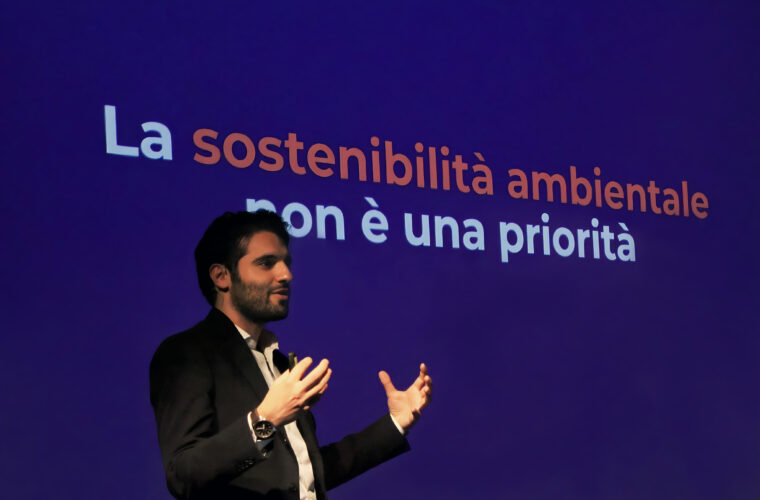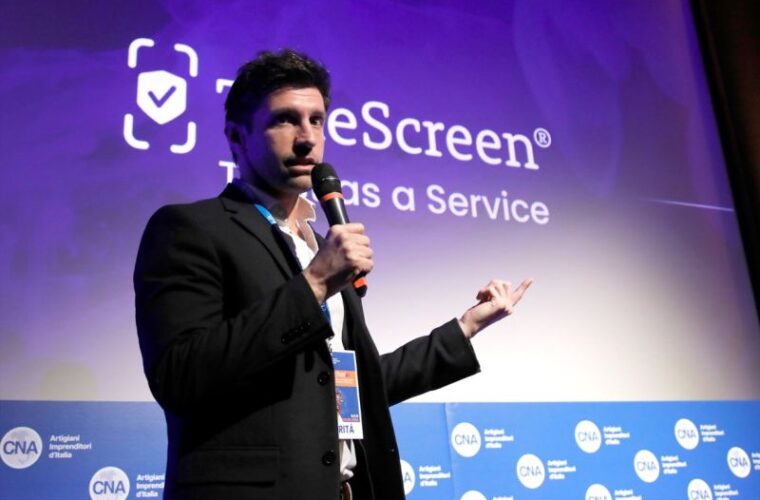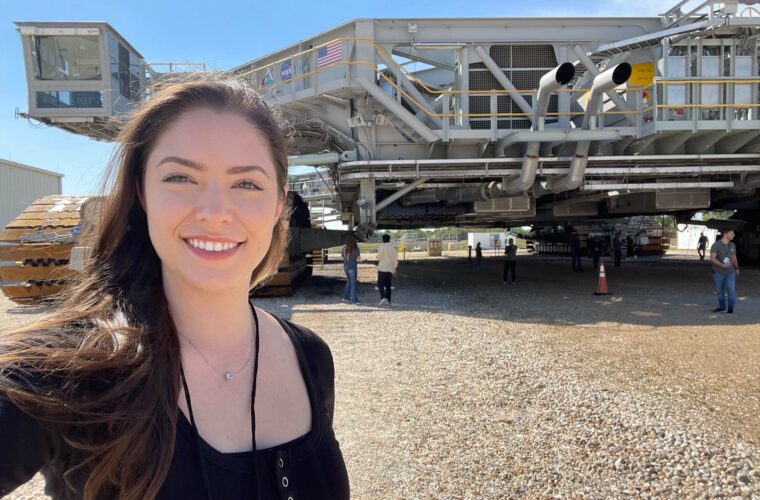Meet the talent: Christine Mullaney, Author, Speaker & Podcaster
Place of residence: I split my time between Ireland, where I’m from, and Southern Spain.
Position: Speaker. Author. Podcaster. Neurocultural Communication Creator & Trainer, Public Speaking, Presentation and Pronunciation Skills Coach. TEDx Speaker and Speaker Coach.
Please describe a day in your life
No two days are the same. Generally, I am sipping a coffee or hot water with lemon and reading while the sun awakens over the horizon. Reading may include Spanish books to improve my language skills, stories and articles to inspire podcast ideas, or spiritual cards and books, which I then journal about. Some days, I start with a podcast. I commute to teach English three days a week, so those afternoons from 1 pm to 10:30 pm are blocked. On the days I work from home, I do a block of work (client calls, social media, planning), then swim in the sea. Afterwards, I cook, listen to music and sing to give myself cognitive downtime.
Then, I’ll do another work block (client engagement, planning talks, networking, etc.). Depending on my work, I may go for an evening walk to clear my head before cooking dinner, again with a musical accompaniment. I’m more creative in the evening and at night, so that’s usually when I research and prepare notes for my podcast. I record and edit very early in the morning, so once a week, I’m up at 4 or 5 am to do that. It takes about 16 – 36 hours to prepare and produce each week. I write at different times and in different places, sometimes at home, sometimes in cafés. Before sleeping, I often go for a walk, relax on the couch, read, or sit silently looking at the moon. I generally try to be in bed before 12 during the week.
How many projects are you currently working on? Please describe them
Becoming the published author of my book “From Head to Heart: Healing on the Camino”:
In 2022, a little under a year after leaving a narcissistically abusive relationship, I walked the Camino de Santiago (790 km from the South of France into and across Northern Spain to Santiago de Compostela). Along this journey, I healed “From Head to Heart”, learning and re-learning many lessons along the way. The book is a memoir of the walk, which weaves back and forth between it, the life that led me to being in an abusive relationship, and the steps I took to leave it.
Woven throughout the story is recent research on narcissistic abuse and the neuroscience of human behaviour. I have never been published before, so I am learning how to write effective proposals and submit them to agents to have the book picked up and selected by an international publisher. My dream is that it can become a modern-day “The Alchemist”, as crazy as that might sound. I have been reading Paulo Coelho for years. His worked has had a considerable influence and impact on my life.
Making my podcast Connected Communication my full-time job:
As a child, I silently dreamt of becoming a radio host, but back then I didn’t see myself as able to achieve that goal. As I got older, I realised I didn’t want my voice to be controlled or managed by societal agendas. The podcast Connected Communication allows me to do something I adore: read, research, contemplate and produce stories and theories about things I am interested in, which I think can help listeners become more self-aware, aware of others, and most importantly, aware of our intricate connection with our stories, the land and nature.
To those who enjoy my podcast and can afford it, I offer access to an online platform of over 180 lessons in communication, English pronunciation and public speaking for a very low monthly fee. By joining, subscribers help me to afford to live while being able to invest sufficient time and energy in creating a free podcast each week. In the future, I would like to host live podcasts, “conversations with the audience,” and interviews with experts in various fields in which I and my listeners have an interest.
Becoming a paid speaker:
I have been training and performing in theatre since I was 7 years old, both in the theory of speech and technical performance through drama and singing. Only in the past year have I acknowledged how much I adore speaking and presenting. I am thus beginning to speak on more stages to increase my visibility and reach. I will continue developing that by offering my services as a paid speaker at conferences and in-company events.
Public speaking group programmes:
I have been coaching individuals for a number of years now and enjoy the one-to-one connection. However, for speakers to develop their skills and overcome confidence blocks, being in a small, dedicated group incorporating personalised time is highly effective. Thus, one of my current projects is to get small group programmes off the ground. This may be for individuals or organisations working in collaboration with organisations that wish to develop rising stars efficiently and effectively for the rapidly developing global market.
Hiberno Stories:
During the summer in Ireland in 2024, the veil that had been covering my literary creative self was lifted. I began writing the Hiberno Stories Blog. This creative project is one that I aim to develop into a book of poetry, a book of Irish stories, and at least one, if not two, new novels or even a series of books. I will pursue this as my next step when I have achieved the consistency I aim for with the previous projects mentioned.
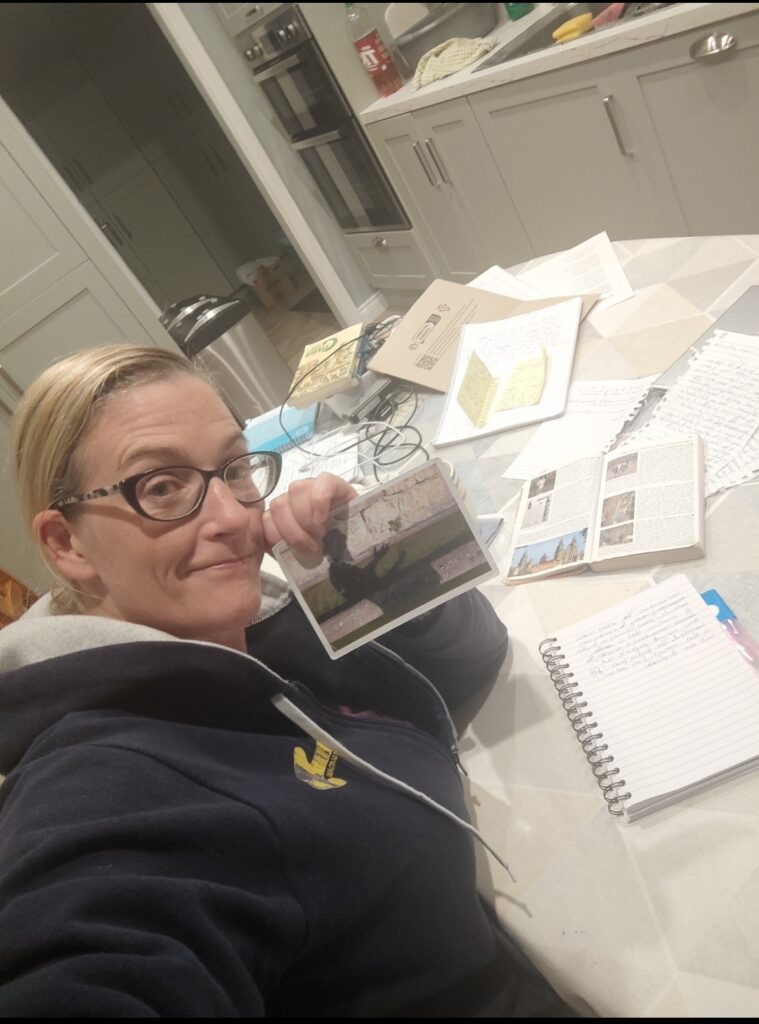
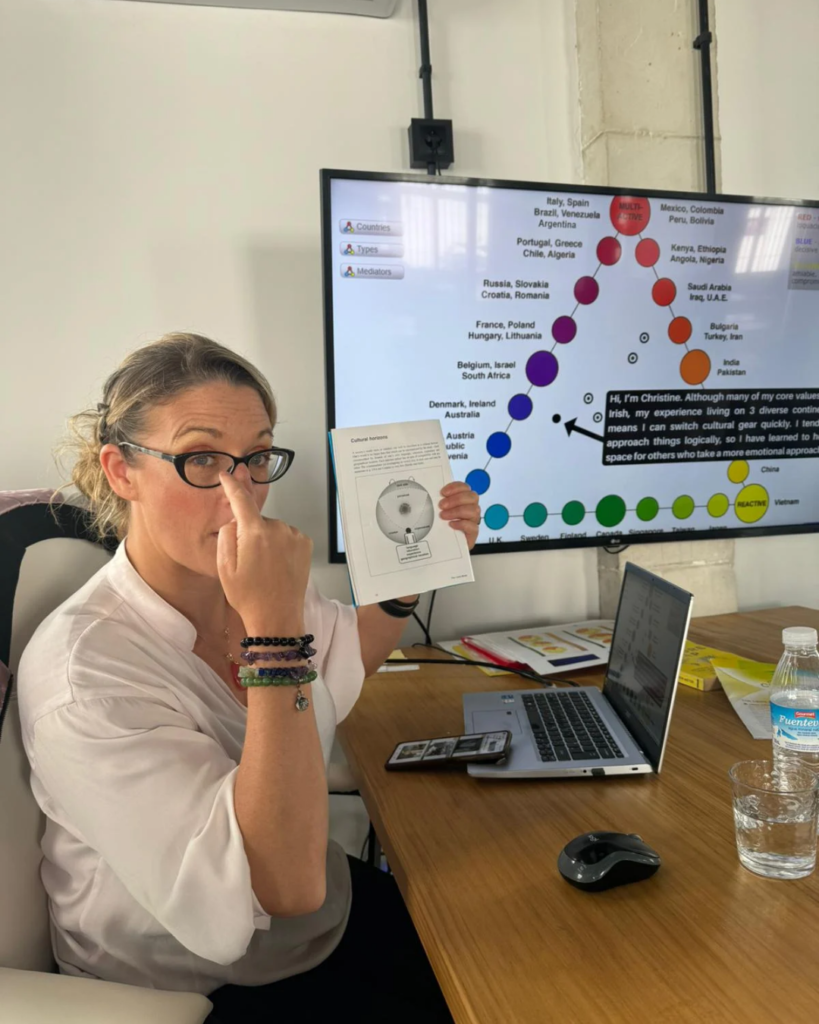
In your opinion, who is the most influential person/company in the world of technology these days?
This is an extremely tough question to answer because it depends on the aspect of technology you mean. Elon Musk is incredibly influential, and AI is, too. While AI is neither a person nor a company, it is being developed as an extension of humanity, with the goal of it one day being “beyond theory of mind” or “self-aware.” ChatGPT alone has over 200 million active weekly users. This makes it incredibly influential on a scale that is next to impossible to manage.
If you could pick one app/product/project existing now that you wish you were involved in, what would it be?
What a great question this has been to ponder! Thanks for asking. I reached out to people I know and others on social media to find out what apps are being used and got what I’d have expected as typical responses. Then, I found AssistiveWare, a company that works closely with the Augmentative and Alternative Communication (AAC) community. They are on a mission to achieve two things. Firstly, they develop technologies and create tools which give voice to those who cannot use speech, allowing them to participate fully in society. Secondly, they actively work towards a society that understands and accepts AAC. They put the user first, and it’s personal!
How do you see technology evolving in the next ten years?
Part of me feels like technology is devolving, not evolving, or maybe elevating as opposed to evolving. Evolve means “develop gradually.” The flood of new devices and AI-assisted software deluging our screens and minds without any regulation or pre-thought risks creating havoc in our fast-paced world bent on prolific progression, often at the expense of the planet and many of the humans who live on it. Is having a goal of developing sentient AI “evolution?”
I see more and more people waking up to the dangers posed by hyper-speed advancement and a slowing down of immediate implementation to allow for some degree of critical consideration before global release. I see a significant increase in the development of technologies that aim to support sustainable development, understand our ecosystems, and positively impact the development of a society that is not only open to the awareness of but intentionally inclusive of neurodivergent individuals.
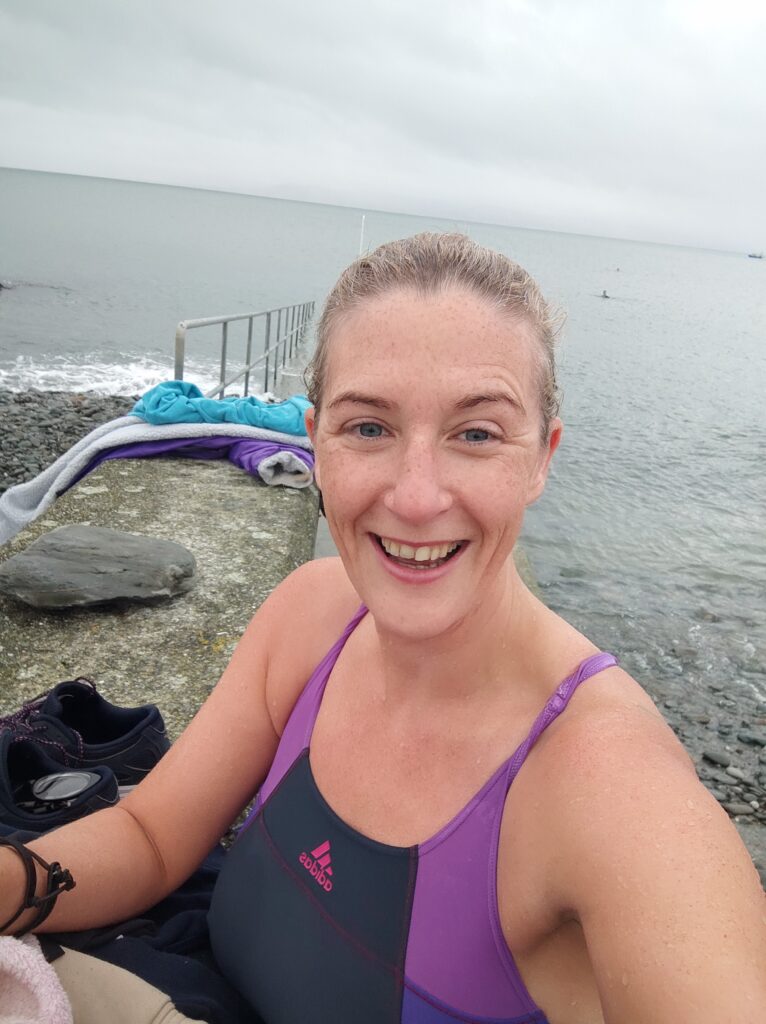
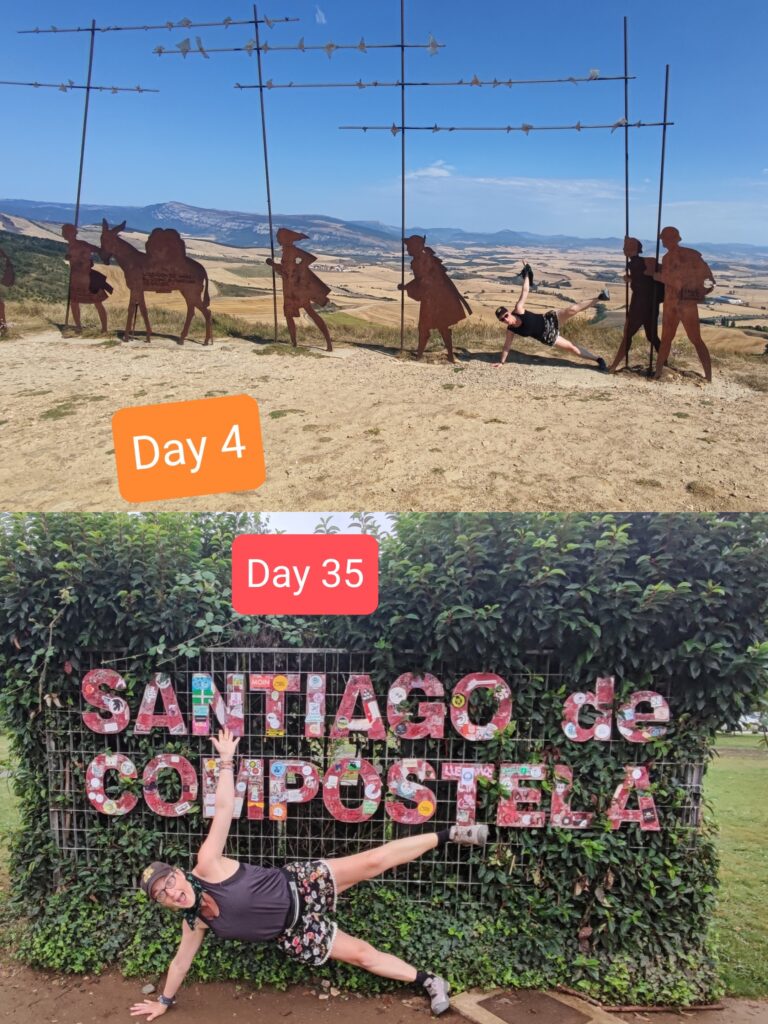
What would you like the industry to look like in ten years?
I would like there to be more regulation, more education, more freedom of choice, and more interconnection of the commercial and charitable. As the implementation of AI technologies increases, it will be important for users to be fully aware of their impact on their capacity to think critically and create intuitively. AI is being rolled out so quickly that organisations are throwing it on top of staff without training them in its use or understanding its true impact.
I would like to see more education programmes for organisations on how AI can assist human operations, especially for older employees who may not have the same capacities as their younger peers to grasp the technologies. On top of this, I would like to see billion-dollar corporations given monetary social responsibility. By this, I mean that for every new app designed to support, for instance, the development of neurodivergent individuals on a commercial basis, a project should be implemented that makes the same technology available to marginalised communities. Finally, if large organisations are funding neuroscience research to develop new technologies, I would like to see regulations in place that monitor and assess how the findings are being used to ensure ethical implementation from a marketing perspective.
What are the three characteristics you have that make you successful in tech?
Agility of mind and manner. Creative, critical thinking. Adaptability and immediacy in action.
What is the most challenging thing you have had to deal with during your career?
I was being underestimated. I’m slowly discovering I might be neurodivergent. (I haven’t done official tests yet.) Often, I am at the end of a solution before a problem has been fully understood. I have lived in 5 countries and worked on 5 continents in over 20 companies in more than 30 roles since the age of 11. I read a lot, contemplate, and apply what I have learned to my life, which means I can quickly pull very broad mental maps together.
People usually don’t understand how someone can do this with such immediacy, so I have had to work very hard to constantly prove that my solution or suggestion is based on reasoning and research, not just an ill-considered, whimsical thought. I have experienced sexism, toxicity, and my voice being silenced, but I think that my knowledge and experience being underestimated has probably been the toughest to deal with mentally and emotionally.
What is your greatest achievement up until today?
Personally, leaving a narcissistically abusive relationship, acknowledging that the confident, independent woman I had been had succumbed to such abuse, forgiving her, and writing a book about the experience have been my greatest achievements so far.
What is your next goal?
I want to get my book published internationally and into the hearts and minds of every person who is trudging their way through trauma, through the pain of being silenced, and the sadness of being seated at the back so that they may allow their light to shine once more and stand centre stage under the spotlight, radiating as we are all designed to.
What tips do you have for people wanting to start in the tech world?
Find what makes your fingers fly, your eyes light up, and your body bounce, then pursue it to its end, allowing nothing that tries to trip you up. If you veer off course as you traverse your life journey, look for the lessons, ask for guidance and help, listen to yourself and others, then question what they say and find your truth in it. Get yourself onto LinkedIn, become useful by commenting and sharing, connect genuinely with people you are interested in, and learn the fine balance between giving and receiving. Most of all, explore, with the insatiable curiosity of a child, question, contemplate and implement – having as much fun as possible along the way.
If you could say something to your younger self, what would it be?
Strap in for the ride, girl! It’s not easy, but you are more than strong enough to handle it, and there will be as many, if not more, incredible experiences as there are challenges. Nothing will ever be put in front of you that you cannot handle as long as you take a step back, take a breath, look at it from a different perspective, and laugh at it when possible. When your gut shouts, listen, but if you don’t, accept the lesson, forgive yourself and move on with love in your heart and laughter in your head.
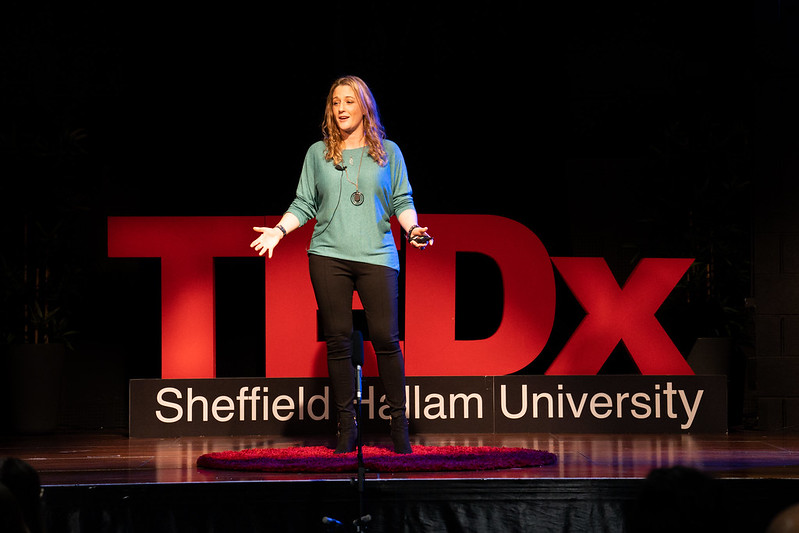
Which famous person would you like to have dinner with and why?
If I had to pick only one, which is incredibly difficult, it would be Constance Markievicz. Why? Because she was exactly the kind of woman I try to be: strong, unafraid of her voice, revolutionary, supportive, and brave.
Where would you like to travel next?
I want to go to South Africa to dive with great white sharks. This was a goal I had set for myself before my 40th birthday, but life derailed it a bit, so it’s my next big travel goal. On the same trip, I’d also like to visit an orphanage in Uganda, which I have been supporting for a few years.
Do you have a person who influences or motivates you?
Many people motivate and inspire me: family, friends, coaches and clients. Right now, though, a podcaster and Irish author called Blindboy is my most significant source of inspiration. My sister spent over a year trying to convince me to listen to him, and my ego refused to let me because I associated him with something my conditioned mind judged negatively. Once I started listening to his podcast, the final cracks of trauma started being woven together, and the creative self I’d been keeping hidden since my teenage years rose up, roaring. I deeply respect his courage and his work to encourage others to create with absolute freedom of mind and emotion. I owe my summer of storytelling to him.
What did you dream of creating/inventing/doing as a child?
I first dreamt of becoming a homicide detective. For a while, I wanted to be a vet and then an Olympic swimmer. Once I started reading and writing, I wanted to be a poet. I used to submit a lot of poetry to competitions (and had a couple published). One year, I sent a short story to a national competition. I stopped writing stories when it was rejected, letting them suffocate a dream for many years. I dreamt of signing with Michael Jackson, like the young girl on HIStory, and being a radio DJ. I just wanted to create a world in which whatever I did left people feeling good, heard, and essential, no matter their background.
What advice do you give to young girls who want to follow similar careers?
I’m not sure anyone would set a goal of wanting to follow a career path similar to mine. By the time I was 40, I had worked in over 23 companies, in 39 different roles, on five continents with at least 50 different nationalities. I didn’t choose to do that. I followed my gut and my desires, doing what interested me. At the same time, I am certified in various areas and qualified for a master’s level. What I’d say is, discover yourself.
Society will do its best to box you into a suitable position and keep you there. Don’t be afraid to break the box or climb on top of it and explore how your perspective changes. Embrace yourself, whatever you’re labelled “neurocapabally.” Only you can determine your place and position in this world. Embrace change, flip fear to force, and find love, laughter and leisure in everything you do.

